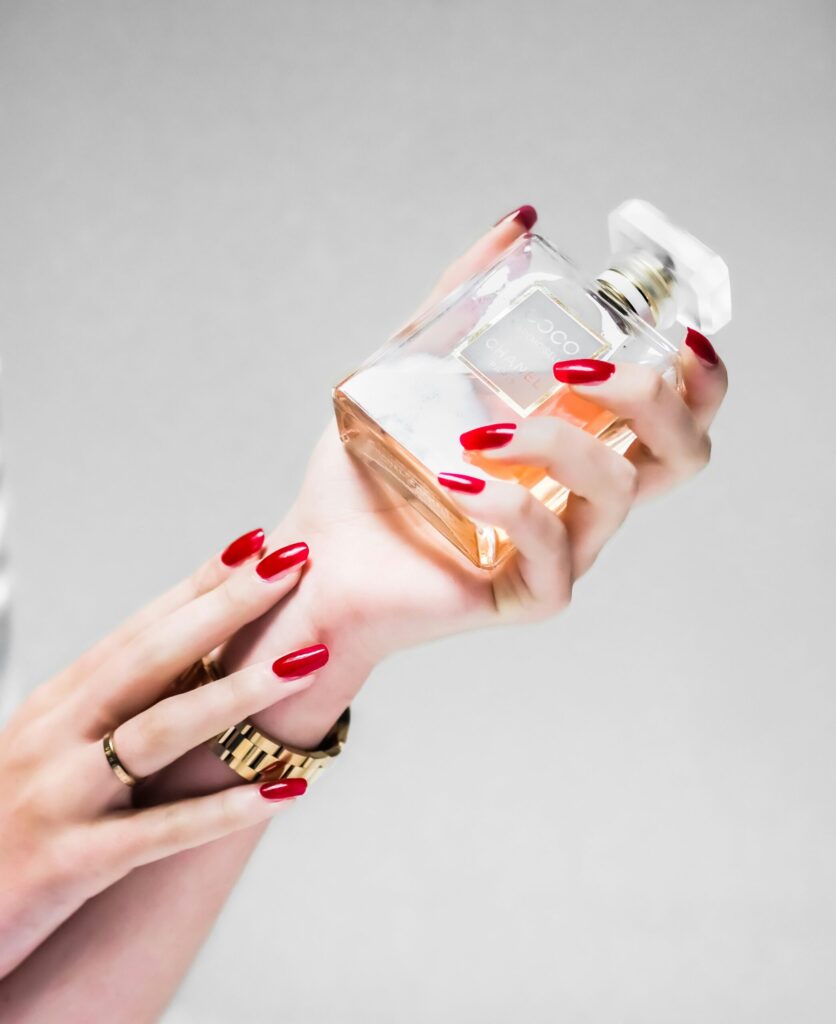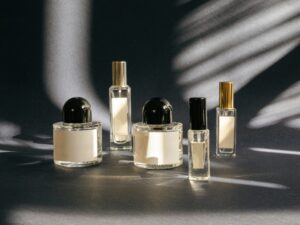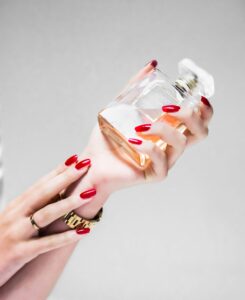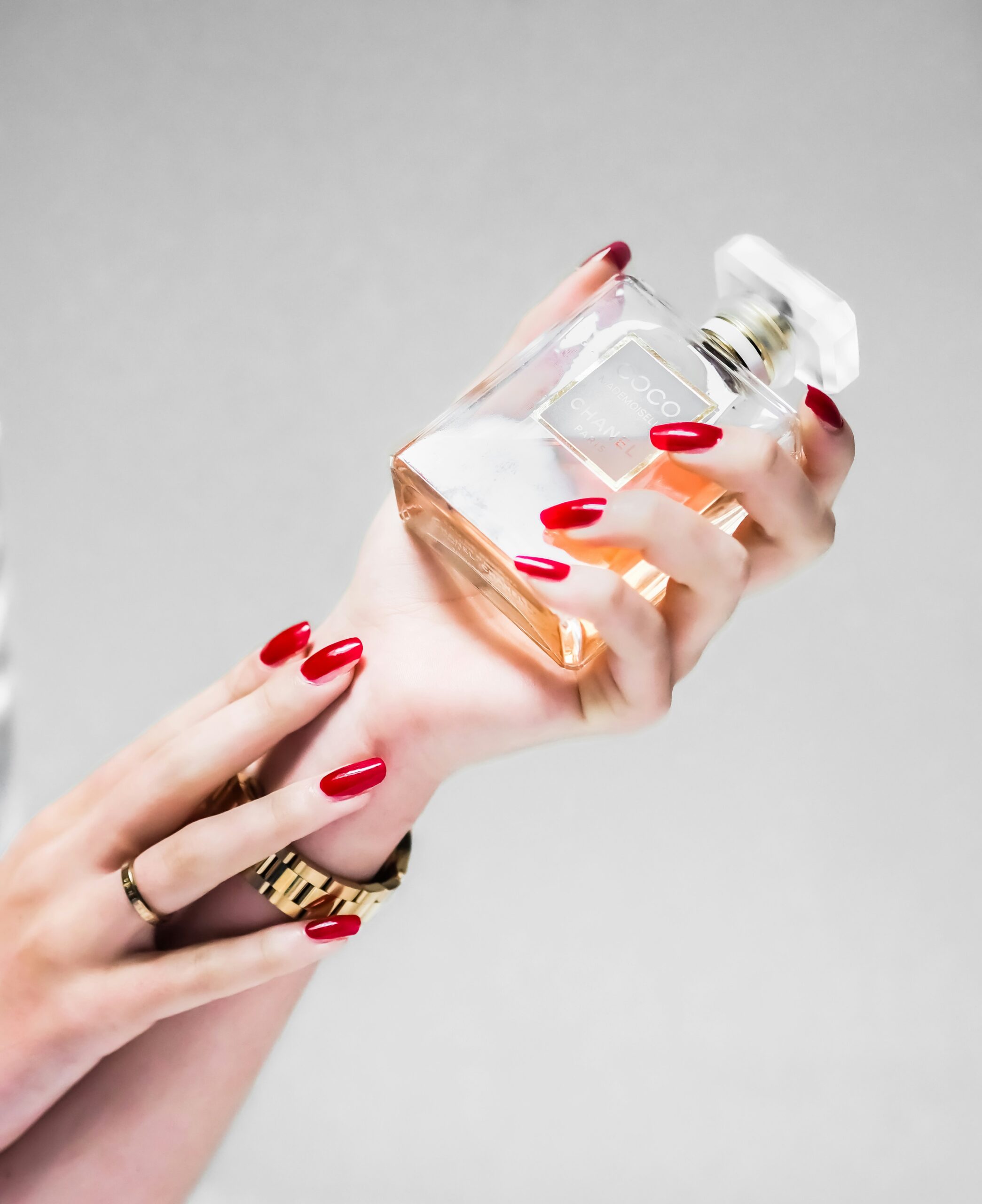I often get this question from peers: What is a Niche Fragrance? In the world of luxury scents, the term “niche” pops up frequently, evoking images of rare perfumes tucked away in elegant boutiques. There is even a misconception that “niche” equals better. Over the years, niche fragrances have soared in popularity, growing into a vibrant industry of their own and generating more interest than ever in fragrances that might have been previously unknown in the mainstream. This first occurred to me one day when I went fragrance-smelling and noticed a group of teenagers ruminating over the Parfums de Marly section, with the tallest of them saying, “I’ve got this one, that one, that one…” and so on and so forth. Today, I’ll share some insight on what exactly are niche perfumes: what niche fragrance really means, how these perfumes differ from designer scents, the key traits that define them, and how you can start exploring this exclusive world yourself. Consider this a friendly guide from someone who’s spent years navigating the perfume aisles and spending way too much money.
What Does ‘Niche Fragrance’ Actually Mean?

I don’t remember when I first heard the term “niche fragrance.” I just knew whatever I could find in my local department store. A niche perfume is a high-quality fragrance produced in limited quantities by independent or specialized brands, typically sold through boutique retailers rather than mass-market department stores. These perfumes often emphasize unique compositions, artistic expression, and exclusivity. These are the opposite of the big designer perfumes you see everywhere; instead of being available in every department store, niche perfumes might only be found in a handful of boutiques or the brand’s own shop. The focus is on artistry and uniqueness. In fact, niche brands typically focus solely on fragrance as their main product, unlike designer brands that might be fashion houses first (Chanel, Dior, Gucci, etc.) and do perfume as just one part of their business.
Niche perfumes are sometimes called boutique perfumes, indie fragrances, or artisanal perfumes, and those terms hint at their character. They’re usually created by in-house perfumers or founders and curators who have a passion for the craft. There’s minimal corporate interference, meaning the perfumer’s creative vision takes center stage. Often these brands have a limited production run and intentionally limited distribution, so not everyone on your block will be wearing the same scent as you. There is a tendance to highlight the perfumers as the stars and fragrance heads usually follow what their favorite perfumers create. By the 1990s, many consumers were tired of the “same scent, different bottle” phenomenon in big designer releases. Perfume lovers started seeking originality and personal expression in scent, paving the way for small, creative perfume houses to flourish. A niche fragrance is all about a distinctive identity and a dedicated, artful approach to perfumery.
Key Traits That Define a Niche Perfume
So what makes a niche fragrance niche? Here are some key traits that define a niche perfume:
-
Artisanal Craftsmanship and Creativity: Niche perfumers treat fragrance as an art form. They favor creativity and self-expression over following crowd-pleasing trends. Each scent is often the brainchild of a passionate perfumer working with full creative freedom. This means you’ll find unusual and daring scent profiles – perfumes that tell a story or evoke a specific mood, rather than simply copying the latest fad. You may find top notes that you’re not used to seeing in mainstream offerings. I’ve smelled niche creations that blend notes you’d never imagine together, such as tomato leaf and vanilla and yet they come out smelling one-of-a-kind.
-
High-Quality, Rare Ingredients: One thing I’ve noticed is that niche brands often use exceptionally high-quality ingredients. They’ll invest in pure essential oils, rare absolutes, and exotic materials to give depth to their fragrances. For example, a niche perfume might feature real oud wood oil or a particularly fine jasmine extract, used lavishly. Tuberose or iris are ingredients you might also see. The result is usually a richer, more nuanced scent. According to industry experts, niche perfumes are composed with the highest quality ingredients, often hand-blended in small batches, resulting in a product that’s “unique, rich and superior in quality”. In practical terms, this can translate to a fragrance that smells more natural or refined, and sometimes that also means it lasts longer on the skin.
-
Limited Production & Exclusivity: Niche fragrances aren’t churned out by the millions. They tend to be produced in limited quantities and sold through select channels (perhaps only through the brand’s boutique or a few luxury stores). This limited availability gives them an exclusive allure and for some of us (me) it’s quite satisfying to wear a scent almost no one else around you has. As one source puts it, buying a niche perfume is a chance to own something different that you “can’t find on every high street”. Some of my niche bottles feel almost like collectors’ items because they can be hard to replace once finished, especially if it was a limited release or a smaller indie brand.
-
Minimal Marketing Hype: Unlike designer brands, you won’t see niche perfumes splashed across TV commercials or starring in celebrity endorsement deals. Niche houses usually have little to no mass advertising and their reputation spreads through word-of-mouth, perfume community reviews, and the quality of their products. This also means niche brands don’t need to play it safe to appease a broad audience or shareholders. They earn customers through the merit of the scent itself, a principle proudly upheld in the niche perfume industry. Personally, I find this refreshing because when I fall in love with a niche scent, it feels like my own personal discovery, rather than something everyone else is wearing.
-
Distinctive Scent Profiles: Expect the unexpected. Without the pressure to appeal to millions, niche fragrances can venture into more adventurous olfactory territory. They might emphasize a single note in a new way, or combine ingredients that mainstream perfumes usually wouldn’t. This results in a wider and more interesting range of scents to explore. For instance, one niche perfume in my collection centers entirely around the smell of fire and incense – it’s weird in how accurate it is and incredibly wearable.
-
Higher Concentration & Longevity: This isn’t a hard-and-fast rule, but many niche perfumes come in higher concentrations (Parfum/Extrait or high-strength Eau de Parfum) compared to their designer counterparts. The idea is you’re getting more perfume oil and less filler. In my wearings, I’ve found a number of niche fragrances have impressive longevity and sillage (how far the scent radiates), giving you a full-day experience from a couple of spritzes. Of course, this isn’t all niche fragrances as every fragrance is different and some won’t have much longevity at all.
-
Price and Luxury: Niche perfumes often occupy the higher end of the price spectrum. You’re paying for that quality and exclusivity (and supporting a smaller brand). Think of it as investing in a piece of olfactory art. A beautiful niche fragrance can be a luxury indulgence. As one blog noted, if you’re splurging on a truly unique, high-quality scent for yourself or a loved one, you’re likely reaching for a niche fragrance, whereas designer perfumes often fill the role of the more affordable, everyday scent.
These traits make niche perfumes feel different from the designer scents most people are used to. Next, let’s directly compare niche vs. designer.
Niche vs. Designer: What’s the Real Difference?

At this point you might be wondering how niche fragrances differ from the mainstream designer perfumes you see in every department store. As someone who enjoys perfumes of all kinds (I love niche offerings but I’m still obsessed with Chanel & Hermès), I’d describe the difference in a few key ways:
-
Brand Identity & Production: Designer perfumes come from big fashion houses or celebrity brands – think Chanel No.5, Dior Sauvage, or Gucci Bloom – backed by multinational cosmetic companies. These scents are produced on a huge scale to supply stores worldwide. Niche perfumes, on the other hand, come from smaller specialist perfume houses (often only doing perfume, not fashion). They’re produced in much smaller volumes. You’ll see the Diors and Chanels at every perfume counter, but niche houses like Serge Lutens, Le Labo, or Maison Francis Kurkdjian might only be found in dedicated perfumeries, upscale department stores or via their own websites. This limited distribution is a hallmark of niche. It also means when you wear a niche scent, you’re less likely to bump into someone else wearing the exact same thing.
-
Creative Freedom vs. Mass Appeal: Designer scents are usually crafted with broad appeal in mind – they undergo market testing and aim to please a wide audience. There’s often a safer, trend-following approach: if sweet gourmands are “in”, many designers will have one; if aquatic fresh scents are trending, expect multiple blue bottle releases. Because of this, popular designer perfumes can sometimes start to smell similar or follow a familiar formula. Niche perfumery flips that script: freed from mass-market expectations, niche brands can be quirky, bold, even polarizing in their creations. The perfumers are like indie filmmakers and they can take risks and focus on storytelling through scent. This is why niche fragrances are celebrated for their originality and complexity, though this isn’t to say that this is true across-the-board. In my experience, a designer fragrance might immediately smell “pleasant” and familiar, whereas a niche fragrance might catch me off guard, intrigue me, and then unfold in unexpected ways over hours. Neither approach is wrong and it’s more about what experience you’re looking for.
-
Marketing and Image: With designer perfumes, image is huge. Ads featuring celebrities or supermodels, glossy magazine spreads, and big-budget marketing campaigns are the norm. The brand name can be as much a selling point as the scent itself. Niche brands usually operate without that glamour marketing machine. Many niche houses do little more than share their story on a website or rely on enthusiast communities or influencers to spread the word. There’s often no celebrity face attached (with a few exceptions where a famous perfumer becomes a sort of celebrity within the niche community). I find this aspect fascinating and when I buy a niche fragrance, I often go out of my way to learn about the perfumer’s inspiration or the artisanal process behind it, creating an attachment to fragrances made by certain perfumers.
-
Quality & Ingredients: This can be a point of debate, since there are certainly high-quality designer perfumes and some niche ones that are more conceptual than luxurious. But generally, niche fragrances pride themselves on using top-tier ingredients and higher perfume oil concentrations, as mentioned earlier. Designer perfumes often use more cost-effective formulas, relying on synthetic notes or lower concentrations to cut costs and boost profit margins. Also, niche brands may pursue unusual naturals or expensive molecules simply for the art of it, whereas a designer brand might shy away due to the expense or sourcing difficulty. From a user perspective, some people perceive niche perfumes as having a certain depth or naturalness in scent that can be sublime. On the flip side, designers are consistent and usually more affordable, which also has its merit. In fact, many people start with designer fragrances as an entry point into the world of scent, then later venture into niche as their tastes evolve.
-
Price & Collectability: We touched on price earlier – designer fragrances are generally easier on the wallet. They come in various sizes, are often discounted at online retailers, and you can even find them in drugstore chains in some cases. Niche perfumes, being smaller scale and more luxurious, usually come at a premium and are rarely found at a discount. As a result, I tend to be more selective with niche purchases. Each bottle feels like an addition to a treasured collection, whereas designer scents (especially those gift-set staples) can be a bit more casual to acquire. To use a fashion analogy, designer perfumes are like ready-to-wear fashion (plentiful and convenient) while niche perfumes are like haute couture – special pieces that you seek out and invest in. Neither is inherently “better” across the board and it just depends on what you value. My collection is full of a mix of both.
In summary, niche vs. designer is about mainstream luxury versus boutique artistry. Each has its place. You might wear a designer scent for work or errands and reserve a niche gem for those times you want to feel utterly unique.
How to Start Exploring Niche Fragrances
Embarking on your niche fragrance journey is like opening a door to a huge playground. It can be a bit overwhelming at first and I remember hearing about unfamiliar perfume house names, not sure where to begin. Here are some first-person tips to help you start exploring niche perfumes:
-
Reflect on What You Already Enjoy: Start with your own nose. What fragrances do you already love in the designer or mainstream world? Do you gravitate towards fresh citrusy scents, sweet gourmands, woody incense, or airy florals? Knowing your general preferences will guide you in the niche realm. For instance, I discovered I have a soft spot for amber, leather and juniper berry perfumes, so I began by seeking niche brands known for those notes. If you’re not sure, think of non-perfume smells you adore such as the smell of rain, Gillette aftershave, a forest, a cup of Earl Grey tea and chances are there’s a niche perfume centered on exactly that vibe.
-
Research Niche Brands and Classics: Do a little homework on popular niche perfume houses. There are some brands that collectors often recommend as great introductions to niche. For example, houses like Creed, Diptyque, Byredo, Parfums de Marly, Jo Malone, Frederic Malle, or Maison Francis Kurkdjian come up frequently, each with their own signature style and fan-favorite scents. Read about their bestselling or iconic fragrances and this can give you an idea if their aesthetic matches what you might enjoy. I remember discovering Creed’s Aventus when I was starting out. It got me excited to sample because of what I heard about it. There are great online communities (Parfumo, Basenotes, Reddit’s r/fragrance) and blogs where people share their niche fragrance experiences and recommendations. Use those resources to narrow down a list of perfumes that sound intriguing to you. Part of the joy is in the discovery process itself.
-
Sample, Sample, Sample: This is a personal rule. Niche perfumes can be expensive, and blind-buying a $200 bottle that you end up disliking is no fun. Fortunately, most niche brands or retailers offer sample vials or discovery sets. Try sample sizes first whenever possible. You can experience a number of fragrances at a fraction of the cost of full bottles, which is perfect for experimenting. Wear each sample on your skin, not just a blotter, because niche perfumes are often quite complex and can evolve in surprising ways over several hours. Give yourself time to smell the top notes, then the heart, then the dry down. I find that some niche scents which didn’t wow me at first sniff turned into obsessions after I lived with them for a day. Sampling is fun and a low-stakes adventure where you get to explore lots of different niches without commitment. As one guide wisely points out, trying little bits of everything you like is the perfect way to find your new favorite scent and see how it makes you feel before investing. Many niche enthusiasts keep a “sample stash” to revisit and compare before deciding on the next full bottle.
-
Visit Boutiques or Perfumeries (If You Can): If you live near a big city or a place with specialty perfume shops, go in and sniff around! There’s nothing quite like smelling niche fragrances in person, on blotters and on your skin, with knowledgeable staff or fellow enthusiasts around. I once made a day trip to a niche fragrance boutique in NYC and felt like a kid in a candy store sampling everything from the Penhaligon’s Halfeti to the quirky Amouage Interlude Black Iris. Some department stores also have niche sections now, or high-end retailers that carry brands like Tom Ford Private Blend or Jo Malone (which, while more mainstream now, started niche). And if you can’t get to a store, don’t worry – ordering samples online is the norm and there are decant services that sell small ml amounts of hard-to-find fragrances. The key is to explore at your own pace. There’s no rush to build a collection; half the pleasure is in slowly discovering what truly resonates with you.
-
Be Open-Minded and Have Fun: Niche perfumery is all about stepping outside the ordinary, so be willing to try things that aren’t your usual fare. You might sniff a niche scent that’s completely different from anything you’ve worn before. Maybe you usually hate smoky notes, but one day you find a niche incense perfume that absolutely enchants you. I’ve had my preferences broadened this way many times. Also, don’t be intimidated by fancy packaging or esoteric marketing language; at the end of the day, it’s about what you smell and feel. Trust your nose and instincts and if a perfume makes you happy or intrigues you, that’s what matters, not whether it’s “popular” or what others say. The niche journey is very personal, and there are no right or wrong picks. As one niche perfume guide beautifully put it, the most important thing is that you like it and it makes you feel good.
-
Build Your Collection Thoughtfully: Over time, I’ve learned the value of curating thoughtfully. You don’t need to own dozens of niche perfumes all at once. It might start with one special bottle that you absolutely adore and wear on meaningful occasions. Over time, you might add others that fulfill different moods or seasons, for example, perhaps a bright citrus for summer, a cozy amber for winter, a romantic floral for date nights, and an eccentric wildcard that you wear just for yourself. There’s no hard rule for how many perfumes one should have or use. Some niche aficionados have a signature scent they stick to; others enjoy rotating through 100+ decants. Find what works for you and brings you joy. For me, every new niche bottle I add is like acquiring a piece of art. It helps me to remember the story of how I found it, and it becomes part of my sensory diary.
Above all, remember that exploring niche fragrances is a journey meant to be savored. Take your time, follow your nose, and enjoy every whiff along the way.
Conclusion (Final Thoughts)

Venturing into the world of niche fragrance has been one of the most rewarding aspects of my scent hobby. It opened my senses to compositions and quality I never knew existed back when I only wore designer perfumes. A niche perfume isn’t just about being expensive or rare, it’s about discovering a scent that resonates with you on a deeper level, one that maybe no one else you know is wearing. There’s a special delight in having a signature scent from a tiny artisanal house, or in knowing the story behind the perfume you’re spraying on each morning. That said, I still believe every fragrance – designer or niche – has its own purpose and beauty. My display cabinet has room for a little bit of everything, from a big-name designer classic to an obscure indie gem.
In the end, what makes a fragrance truly luxurious is the experience it gives you. Niche perfumery offers an adventure in that sense. It offers an invitation to step off the beaten path and enjoy the artistry of scent without boundaries. If you’re a perfume lover looking to elevate your collection or simply curious about what else is out there, I highly encourage you to sample a few niche fragrances. You just might find that one magical perfume that captures your personality and makes you feel unmistakably you. And that, in my opinion, is the real beauty of a niche fragrance: it turns wearing perfume from a routine into a refined, deeply personal pleasure. Happy sampling!




